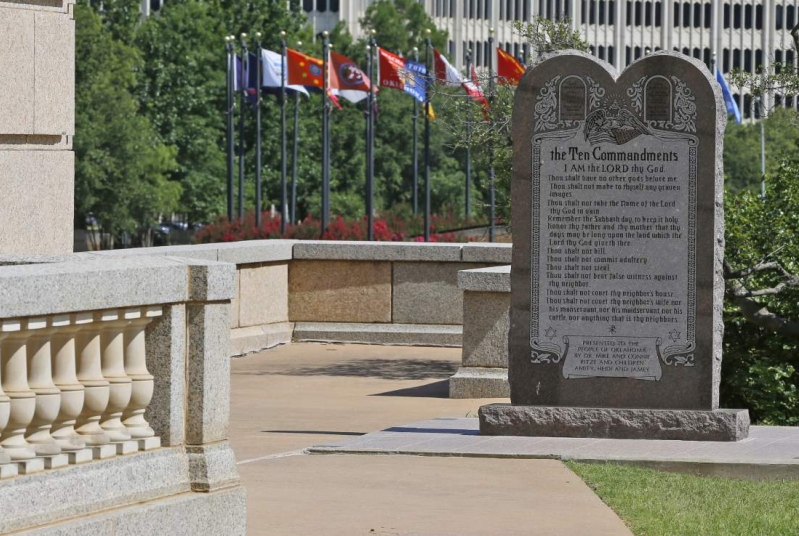
A judge has ordered the Oklahoma Capitol Preservation Commission to remove an iconic Ten Commandments monument from the State Capitol following a complaint from the state's American Civil Liberties Union.
Seventh District Court Judge Thomas Prince released the order on Friday for the removal of the monument by October 12, effectively rejecting a motion earlier filed by Attorney General Scott Pruitt asserting that the demolition of the monument will constitute unconstitutional prejudice against religion.
Prince's decision supported a ruling last June by the Oklahoma Supreme Court, who voted 7-2 in favor of removing the monument, which it considered a violation of Article 2, Section 5 of the Oklahoma Constitution.
This provision prohibits the use of public property to promote any religious symbols or belief.
"No public money or property shall ever be appropriated, applied, donated, or used, directly or indirectly, for the use, benefit, or support of any sect, church, denomination, or system of religion, or for the use, benefit, or support of any priest, preacher, minister, or other religious teacher or dignitary, or sectarian institution as such," the section referred to by the Oklahoma Supreme Court in its ruling stated.
As earlier reported by the Gospel Herald, the 6-foot-tall stone monument, paid for with private money and supported by lawmakers in Oklahoma, was installed in 2012.
However, in August 2013, the American Civil Liberties Union (ACLU) of Oklahoma filed suit against the display, asserting that its erection on the grounds of the state capitol building was unconstitutional.
The lead plaintiff in the case was Bruce Prescott, the director of Mainstream Oklahoma Baptists. Prescott said that mixing the sacred with the secular in such a manner cheapens the display, and asserted that it violated the Constitution's Establishment Clause. He also stated that the statue is "unavoidable" to people walking near the Capitol building, and it gives the impression that the state endorses Christianity as an official religion.
Last September, Judge Prince initially ruled that the monument was not just a religious messages but also served a historical purpose. In turn, the ACLU brought its appeal before the high court.
After the district court ruling, Pruitt released a statement where he maintained that judges should respect citizens' rights to practice and showcase their religious beliefs.
"The Constitution forbids states from banning all religion from public spaces, and from making churches the ghettos of religion where all manifestations of faith are kept separate from public life. Religious people have an equal right to participate in the public square and to have their contributions to Oklahoma history and society recognized," he said, Breitbart reports.
Rev. Franklin Graham of the Billy Graham Evangelistic Association also lamented the decision, writing, "We're living in a time when our country is not only blatantly defying God's laws, but is trying to remove them completely from public view. Just think what a difference it would make if our school children today learned about the #TenCommandments and the God who wrote them."






